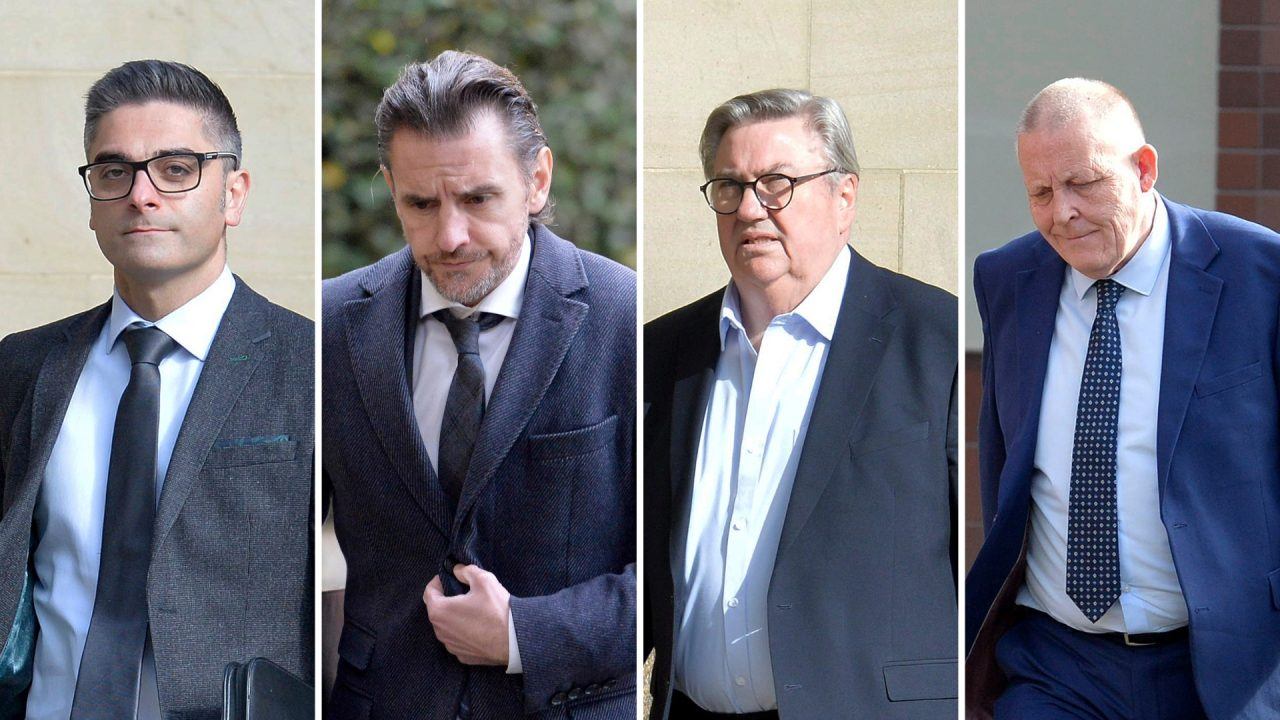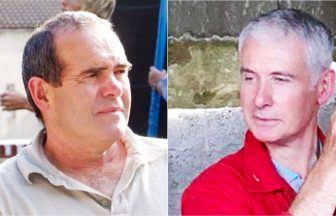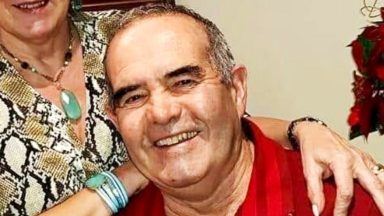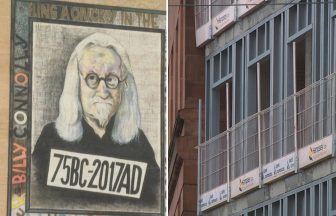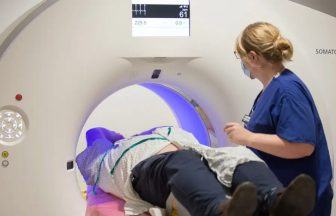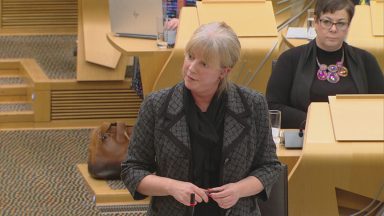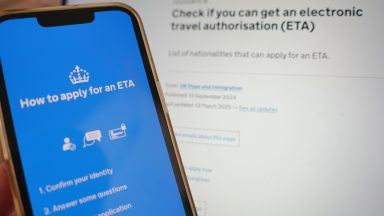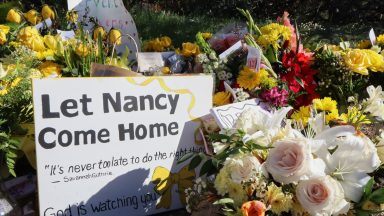Four men have been jailed in a £6m corruption and bribery probe at health boards across Scotland.
The group was charged following investigations into the awarding of lucrative NHS contracts to an Ayrshire–based telecommunications firm.
Adam Sharoudi, 41, and Gavin Brown, 48, ran Oricom Ltd, a firm that started from a garden shed and went on to secure major deals.
However, prosecutors said the contracts for the supply and maintenance of telecoms and video conferencing equipment broke the rules regarding financial wrongdoing in the tendering process.
The Oricom bosses were illegally aided by Alan Hush, 68, and 60-year-old Gavin Cox.
At the High Court in Glasgow on Thursday, Sharoudi and Hush were sentenced to eight years in prison. Brown was handed a seven-year sentence and Cox was jailed for six years.
Sharoudi and Brown were also banned from being directors for ten years.
Lord Arthurson said their actions were “self-serving, arrogant and mendacious”.
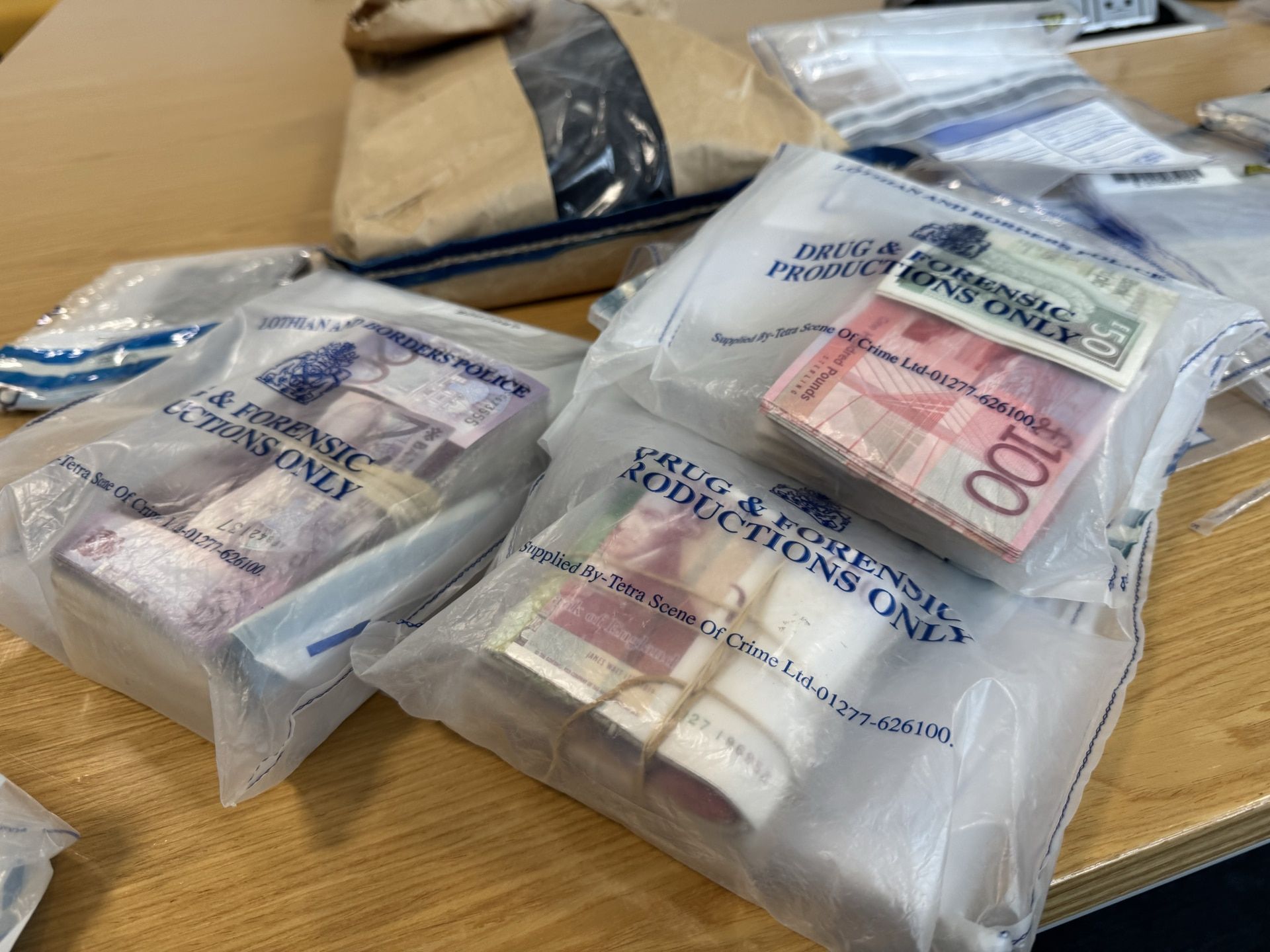 STV News
STV NewsHow was the group caught?
For NHS counter fraud investigators, it all began with a missing mobile.
A health board initially contacted the service, suspecting the phone had been stolen. Investigations then uncovered a far greater crime and exposed fraud, bribery and corruption involving NHS boards across Scotland.
Oricom boss Brown and fellow director Sharoudi bribed two NHS managers – Hush and Cox with money, lavish hospitality trips and holidays to get multi-million pound contracts between 2010 and 2017.
The trial was told that one single contract was worth £3.1m.
In return, Hush got £18,231 of cash bungs and gifts, Cox a total of more than £70,000.
Gordon Young, head of NHS Counter Fraud Services at NHS National Services Scotland, said: “These four individuals set about a scheme to deliberately take advantage of the NHS.
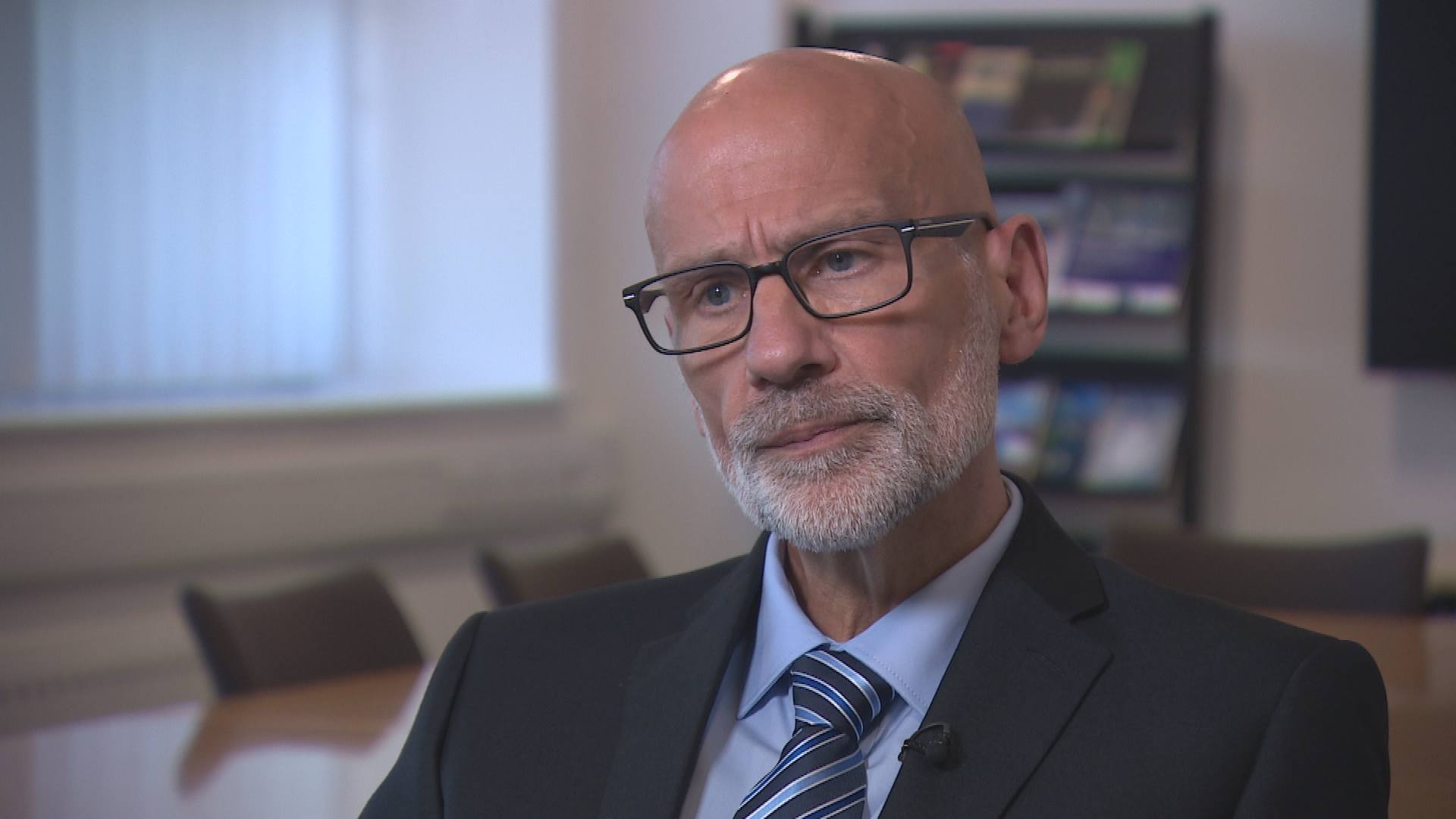 STV News
STV News“This is a landmark prosecution for us. It is the biggest case we have investigated in our 25 years of the service, both in value and in seriousness of offence.
“The team don’t take any pleasure in seeing individuals convicted or ending up with a custodial sentence but our role in the NHS is vital. We do all we can to protect the health service’s funds from anyone who sets about taking advantage of the system.”
Who are Oricom?
Oricom was formed in 2008 by trained engineer Brown and colleague David Bailey.
They later set up at offices in Irvine in Ayrshire. Sharoudi went on to join the team also as a director.
From starting as a small business, Oricom took on more staff and began to build a reputation in the telecoms industry.
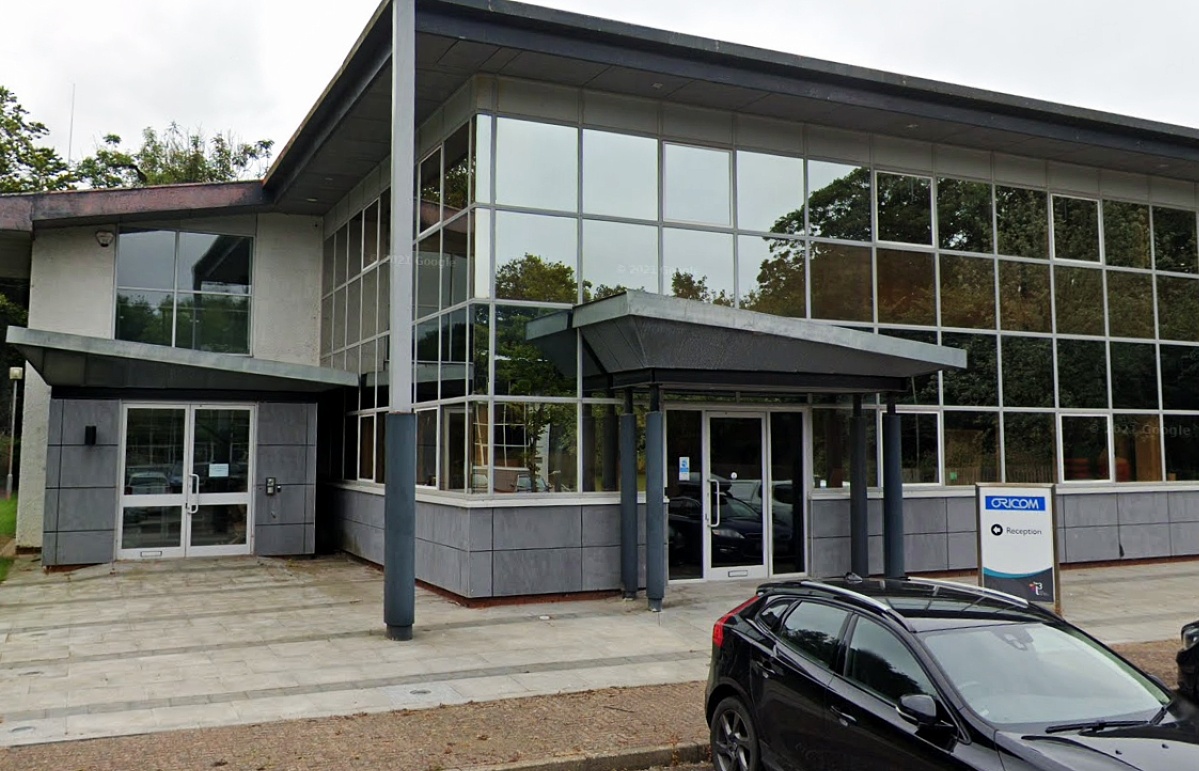 Google Maps
Google MapsBrown told jurors he believed they “could provide a better service” than some of the well-known companies.
This eventually led Oricom getting a number of big health board contracts.
But, in 2015, its offices were raided – including by investigators from NHS Scotland Counter Fraud Services – following concerns into how the deals were secured.
It resulted in the Oricom directors as well as Hush and Cox being arrested and charged.
Bailey was also prosecuted, but charges were dropped against him early in the trial.
Operation Ariston
The investigation – named Operation Ariston – was a protracted affair.
More than 250 witnesses were interviewed, 4,300 pieces of evidence were gathered and tens of thousands of emails and text messages were analysed.
The items seized following police raids on homes and work premises included computers, mobile phones and £31,000 in cash.
Furthermore, £10,000 was taken from Sharoudi’s home in Motherwell, North Lanarkshire, and £21,000 was found in Brown’s house.
Sharoudi later became friends with Hush, who was telecommunications manager at NHS Lothian and then video conferencing manager at NHS Scotland.
Hush ended up friends with Sharoudi, but denied there was any intimate relationship.
The trial heard of numerous text messages between the men throughout the years.
These included Hush referring to Sharoudi as “hunk” and him being called him “stud” in return. Hush also declared his love for the Oricom director.
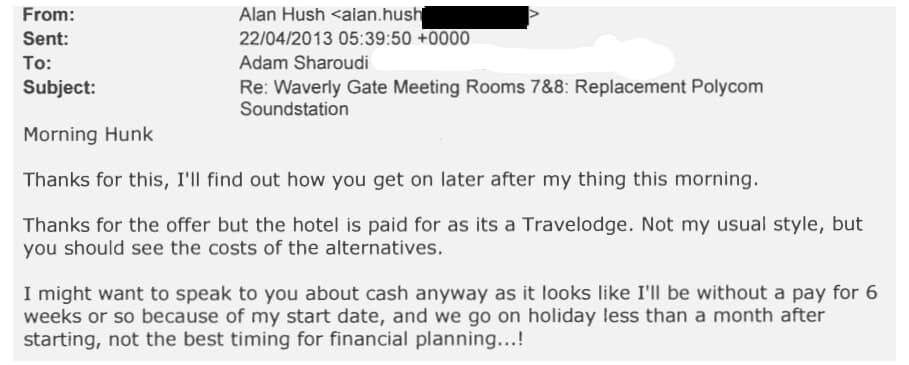 Crown Office
Crown OfficeHush claimed messages would often involve “bawdy humour”.
He denied being dependent on Sharoudi for cash.
But, Hush was said to have complained at one stage: “I am keen to get some commission under my belt. I am going on holiday in a month and cannot afford a pot to p*** in”.
His KC Keith Stewart put to him during the trial: “If it is suggested any reference to commission was you talking about earning money from Oricom in exchange for contracts, what would you say?”
Hush replied: “That was not the case at all.”
He added any remark about “commission” was a joke.
In court, Hush claimed any payments he ever received had been money from his now late father.
 Crown Office
Crown OfficeHe said: “He gave me cheques and cash. He was an old guy and had a box in his wardrobe stuffed with £20 notes.”
But, it was later suggested Hush had used the firm as the “Bank of Oricom” for his help in getting them business including a £750,000 contract with NHS Lothian.
The handouts were said to include train tickets, such as on the Eurostar, stays at the Troy and Re Hotels in London, a near £2,000 laptop, an iPad, meals as well as concert tickets to see Paul Simon, Rufus Wainwright and Patti Smith.
“The individual linked to the missing mobile phone was Alan Hush and we then investigated his dealings further,” explained Young.
“The company involved, Oricom, was a small company initially, but they started to win significant NHS contracts worth several million (pounds).
“Our belief is some of these contracts were won because they were offering gifts, gratuity and hospitality to NHS staff to manipulate the procurement process. As they were working for the NHS, the public sector, the individuals should not have accepted these gifts.”
NHS Counter Fraud Services deals with all types of fraud – from low-level to large-scale bribery and corruption – and regards procurement as a high-risk area.
Young added: “We are working closely with the health boards and their staff to make sure systems are as robust as they possibly can.
“This sentence sends a strong deterrence message and makes it quite clear that fraud, bribery and corruption against the health service will not be tolerated.
“The NHS employs over 160,000 people and the vast majority of staff are honest and hard working. A case like this can damage patients’ confidence in the NHS if it is believed that taxpayers’ money isn’t going to where it was intended.
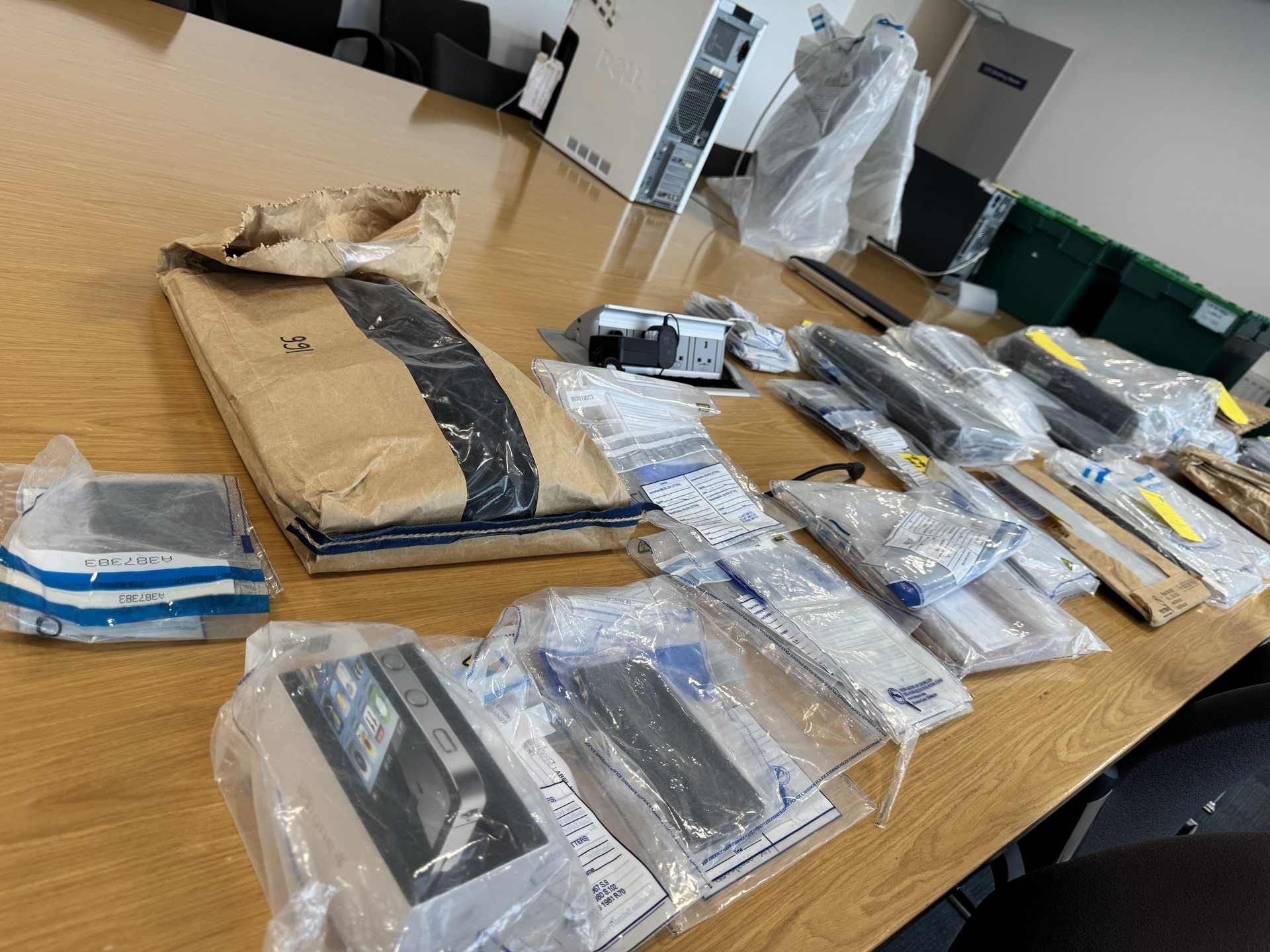 STV News
STV News
“Any money defrauded from the health service is money taken away from frontline services.
“This £6m would have gone directly to patient care. It is absolutely shocking in this case, some individuals thought it was within their gift to abuse a position of trust to divert vital funds for their own personal gain.”
Kirsten Letford, Principal Procurator Fiscal Depute, said: “This was a meticulous investigation and a collaboration between specialist crown prosecutors, NHS Counter Fraud Services and Police Scotland, who all worked exceptionally hard over many years.
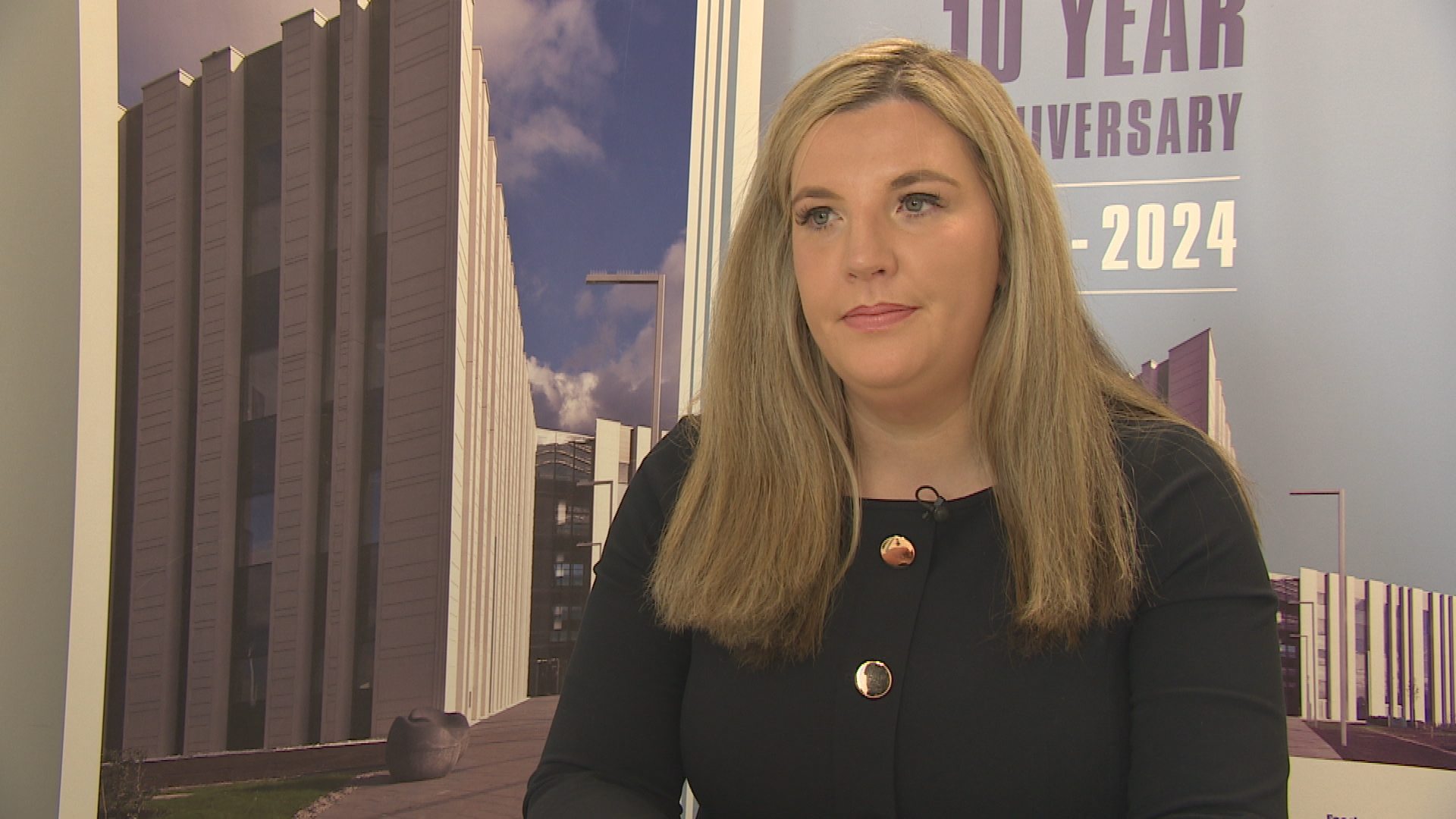 STV News
STV News
“The case demonstrates that those who seek to engage in corrupt practices involving public bodies’ contracts will be prosecuted. It displays a horrific breach of trust and betrayal with the use of public money.”
Prosecutors have confirmed efforts will now be made to recover the public money.
Sineidin Corrins, deputy procurator fiscal for specialist casework at the Crown Office and Procurator Fiscal Service, said: “This is an outstanding result for justice in Scotland.
“As prosecutors, we have shown an unwavering commitment to pursuing and investigating this matter. This was a betrayal of public trust.
“These four men colluded to create a sophisticated criminal scheme. The public will rightly be shocked by the scale of their criminality.
“The scale of this offending against our public health service is particularly egregious.
“The systematic abuse of position by public officials, who accepted inappropriate benefits including cash, holidays and entertainment in exchange for contract advantages, strikes at the heart of public trust.
“It serves as a reminder that procurement processes exist to ensure fair competition and value for public money. When these processes are corrupted, all of society bears the cost.
“The prosecutorial journey has been complex and demanding. It required forensic examination of thousands of documents, hundreds of witness statements, and detailed financial analyses to establish the full extent of this criminal activity.
“The digital evidence, particularly text messages and emails exchanged between the accused, proved pivotal in exposing the true nature of these arrangements.
“This was a meticulous investigation and one which reflects the enduring partnership working between specialist Crown Office prosecutors, NHS Counter Fraud Services and Police Scotland who worked tirelessly over many years.
“Their unflinching dedication to serving the interests of justice, regardless of complexity or duration, deserves recognition.
“The Crown Office and Procurator Fiscal Service has worked closely with these specialist reporting agencies to ensure justice has been served.
“This case demonstrates clearly that those who indulge in corrupt practices for their own personal gain will be brought to book regardless of the time it takes to bring offenders to justice.
“The Proceeds of Crime proceedings that will follow demonstrate our ongoing commitment to ensuring that crime does not pay and that illicitly obtained funds are recovered where possible.”
Follow STV News on WhatsApp
Scan the QR code on your mobile device for all the latest news from around the country


